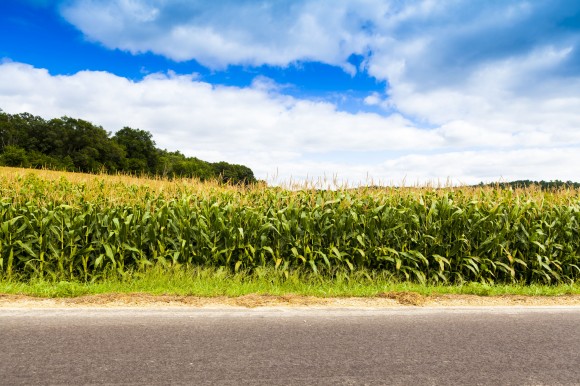The labor shortage in California has hit the agriculture industry particularly hard, creating a tougher environment all around – including for insurance professionals who deal in that sector.
The lack of labor in the Golden State’s agriculture industry further compounds ongoing concerns like limits that leave operators paying more for less, complex employment issues created by the H-2A program, which enables U.S. employers who meet specific requirements to bring in foreign nationals, cyber concerns, environmental liability exposures, and there are even matters of concern for cannabis growers.
David Espinoza, area vice president of Barkley Risk Management & Insurance in Southern California, an Alera Group company, not only has a long history in insurance, he’s been involved in agriculture his entire life – he’s been a grower, shipper, transporter of field products, and he was head of a farm labor contracting firm for 10 years.

As someone who has been on both sides of the coin, he has a unique perspective of what’s going on in California’s agriculture and insurance landscape.
Espinoza sat down with Insurance Journal to discuss what’s going on in one of the state’s most important industries. This has been edited for brevity and clarity.
Insurance Journal: What are a few big insurance challenges in the agriculture industry?
Espinoza: In California, the biggest issue right now is all the fires that are happening. Getting the property coverage and the general liability portion is really challenging. Commercial auto is also very expensive, as is agriculture umbrella insurance, so people are getting lower limits for a lot more money.
IJ: What’s the most interesting thing to know about agriculture in California?
Espinoza: In California, there’s a real shortage of labor, which is an industry-wide problem. In the agriculture industry, it’s been a bigger issue because of people just not wanting to do that type of work. There’s been a big push for larger growers who are using farm labor contractors for their staffing needs. A lot of these farms that have contractors now are also moving towards the H-2A program, which allows them to bring in employees from other countries to do the work, due to the labor shortage.
IJ: What about cyber and agriculture?
Espinoza: Cyber is interesting because it’s hit or miss. There are people in packing houses who are adopting cyber insurance, but out in the field it’s something that they really don’t see a need for at this time.
There’s a lot of technology that’s going into agriculture, but it doesn’t really get shared. You see a lot of the bigger production facilities leaning heavily on cyber insurance, but a lot of the farming operations have still not seen the need for it. That’s slowly coming in as they start to go more digital and go more remote with their timecards.
IJ: Can you talk about environmental liability?
Espinoza: That’s a topic that a lot of growers in California don’t focus on much, just because you have other companies that are doing the pesticide spraying, the contaminant, and all the liability falls on them as opposed to the grower because they segregate that. When it comes to certain crop insurance, they gamble on it because the cost is so expensive.
IJ: Cannabis is big in California. Can you offer any thoughts on cannabis agriculture and insurance?
Espinoza: Cannabis is up and coming. A lot of carriers are shying away from it, and you have a lot of carriers that are starting to open lines of coverage for it. It’s hard to find a good policy form for cannabis because it is new, and all the federal guidelines are challenging.
It’s a tough industry because of the regulations. When it comes to the work behind it, once again the growers are using farm labor contractors for a lot of the harvesting, planting and cultivating of the cannabis. The markets are slim, the coverage forms are very thin, and they’re expensive. But it is something that is trending as more and more cities are allowing people to grow cannabis and hemp.
The other big issue with cannabis agriculture is armed guards. A lot of these facilities have to be completely enclosed, and they have to have security. A lot of them are getting armed guards because they just don’t want robberies happening, endangering the employees and other staff at the location.
Topics California Agribusiness Liability
Was this article valuable?
Here are more articles you may enjoy.



 AIG, Chubb Can’t Use ‘Bump-Up’ Provision in D&O Policy to Avoid Coverage
AIG, Chubb Can’t Use ‘Bump-Up’ Provision in D&O Policy to Avoid Coverage  After Falling 6% in 2025, Average Auto Insurance Cost Will Stabilize in 2026, Says Insurify
After Falling 6% in 2025, Average Auto Insurance Cost Will Stabilize in 2026, Says Insurify  Florida Senate President Says No Major Insurance Changes This Year
Florida Senate President Says No Major Insurance Changes This Year  Uber Jury Awards $8.5 Million Damages in Sexual Assault Case
Uber Jury Awards $8.5 Million Damages in Sexual Assault Case 

